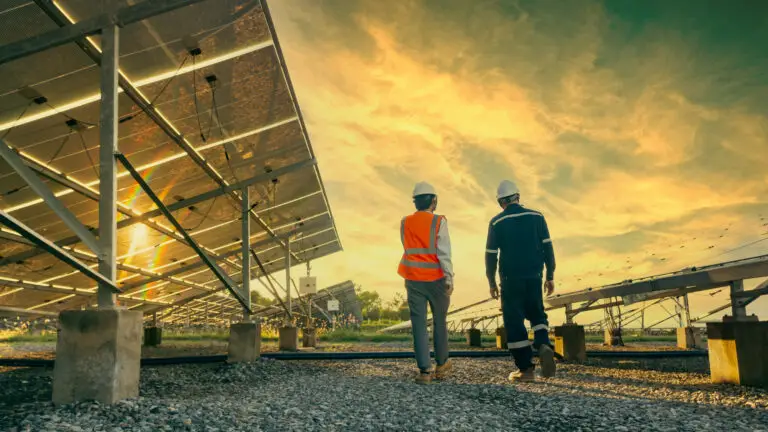Recently, Voltalia announced the commencement of the Bolobedu solar power plant’s first construction activities. They include thorough geotechnical studies, the procurement of various equipment, site preparation, and comprehensive engineering.
Just two months after signing the CPPA with Richards Bay Minerals (RBM), Voltalia, an international player in renewable energy, is kicking off construction on a 148-megawatt solar power plant.
Read also:50 megawatt solar farm in Matebeleland South, Zimbabwe, approved
The largest producer of mineral sands in South Africa and a subsidiary of the British-Australian metals and mining company Rio Tinto, Richards Bay Minerals (RBM), and Voltalia entered into a CPPA2 in October 2021. The 300 gigawatt hours of renewable energy will be delivered yearly to RBM’s production facilities in KwaZulu-Natal throughout the course of the 20-year contract.
The Bolobedu solar power plant will be the biggest renewable energy facility in South Africa. It will be built specifically to meet the demands of a corporate client.
Bolobedu solar power plant completion year
The project will be completed in 2024. The plant is situated in the province of Limpopo in the northeast of the country. It would generate enough electricity to supply 425,000 households for a whole year.
Additionally, it would avoid more than 237,000 tons of CO2 emissions—the equivalent of taking 50,000 cars off the road.
The new construction has a positive impact on the environment and the community while being entirely in line with Voltalia’s mission. Additionally, construction and plant operation monitoring will both be done by local labor. It is said that Voltalia will mostly use local goods and services.
Voltalia has a strong track record in the region, having already operated on its own behalf or that of third-party customers in African nations. These countries includes Zimbabwe, Burundi, Tanzania, and also Kenya.
Voltalia’s CEO, Sebastien Clerc, said that they are delighted to commence construction on their largest project in Africa. This comes just two months after signing the CPPA with RBM and therefore to support it in decarbonizing its sites. He added that their commitment to helping their clients overcome the present energy crisis has never been stronger.
Reported earlier
Oct 2022
Bolobedu Solar PV plant to be established in Limpopo
Following a deal with energy company Voltalia, Richards Bay Minerals (RBM) announced plans to construct the 130MW Bolobedu Solar PV plant. The plant will produce 300GW/h of electricity annually.
The agreement, which also includes a local black-owned partner, plans for the construction of the plant to begin next year and be concluded by 2024. The plant’s construction costs are not publicly disclosed.
Read also: Contract awarded for supply and installation of cable for Al Dhafrasolar power plant project
According to a recent amendment to the state’s Electricity Regulation Act, the plant would be constructed in the Limpopo province of South Africa. This is according to Werner Duvenhage, MD of RBM.
The act was changed to speed up the supply of new power to the national grid. It was also to allow the private sector to build renewable energy without a capping license.
The plant will serve RBM’s smelting and processing plants. The plants take the heavy hits from Eskom‘s rotational blackouts.
It is said that load-shedding affects mining companies’ smelting operations the most. For the past 120 days, the country has seen different regimes.
Duvenhage, commenting on the solar plant, said that the agreement is a first move towards minimizing RBM’s carbon emissions. This is through the use of renewable solar power so that they can participate in a net zero future.
Impacts of the Bolobedu Solar PV plant on the environment
According to the company, the renewable solar power supply will reduce RBM’s yearly greenhouse gas emissions by at least 10%, or 237,000 tons annually.
Rio Tinto, which is listed in Australia, owns 74% of RBM.
Black economic empowerment partners will own 51% of the Bolobedu Solar PV plant. At least 10% of the shares are owned by black women. The community hosting will also have a stake.
A workforce of over 700 people is anticipated overall during construction, dropping to around 50 once the plant is up and running.

Leave a Reply